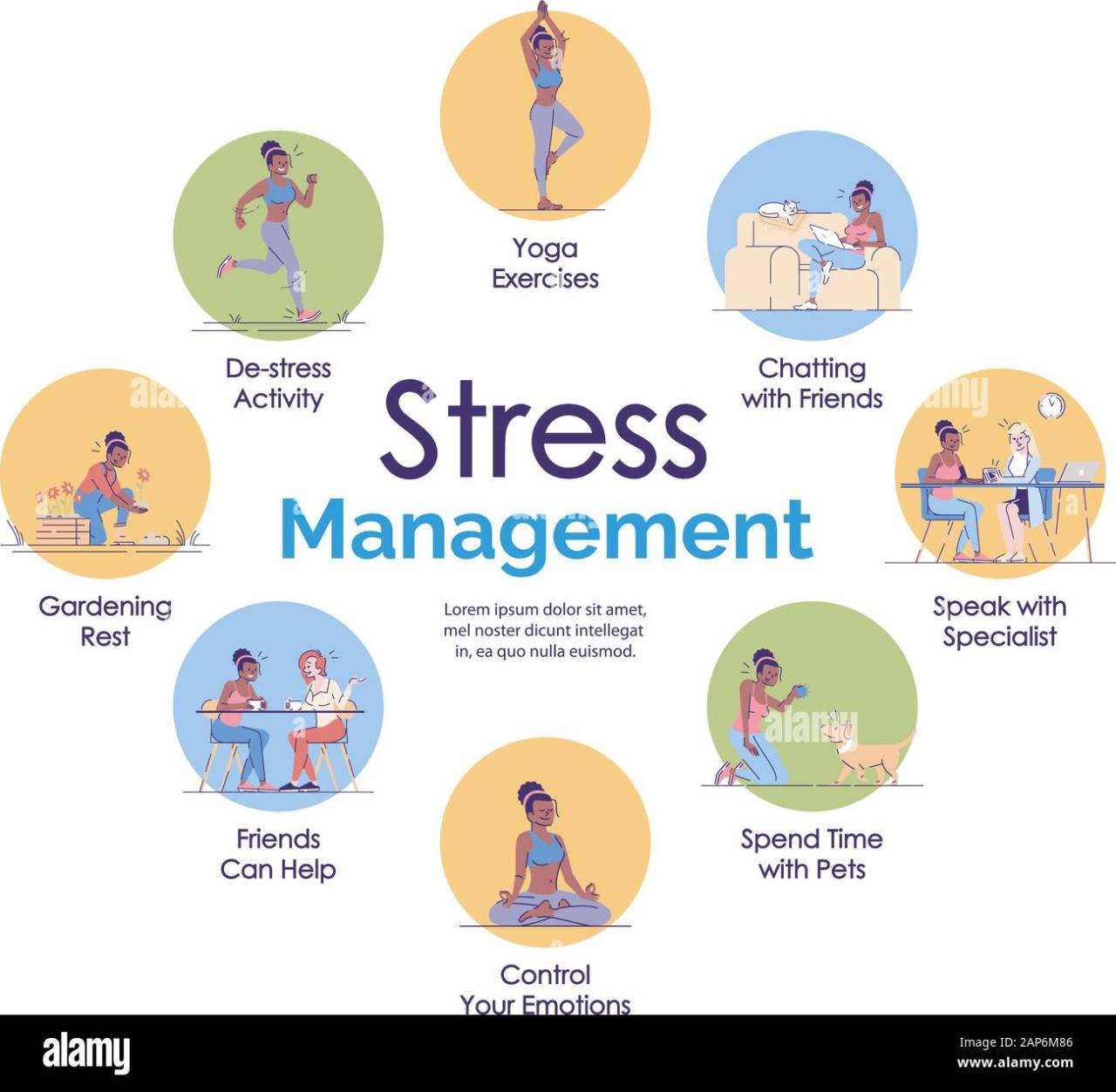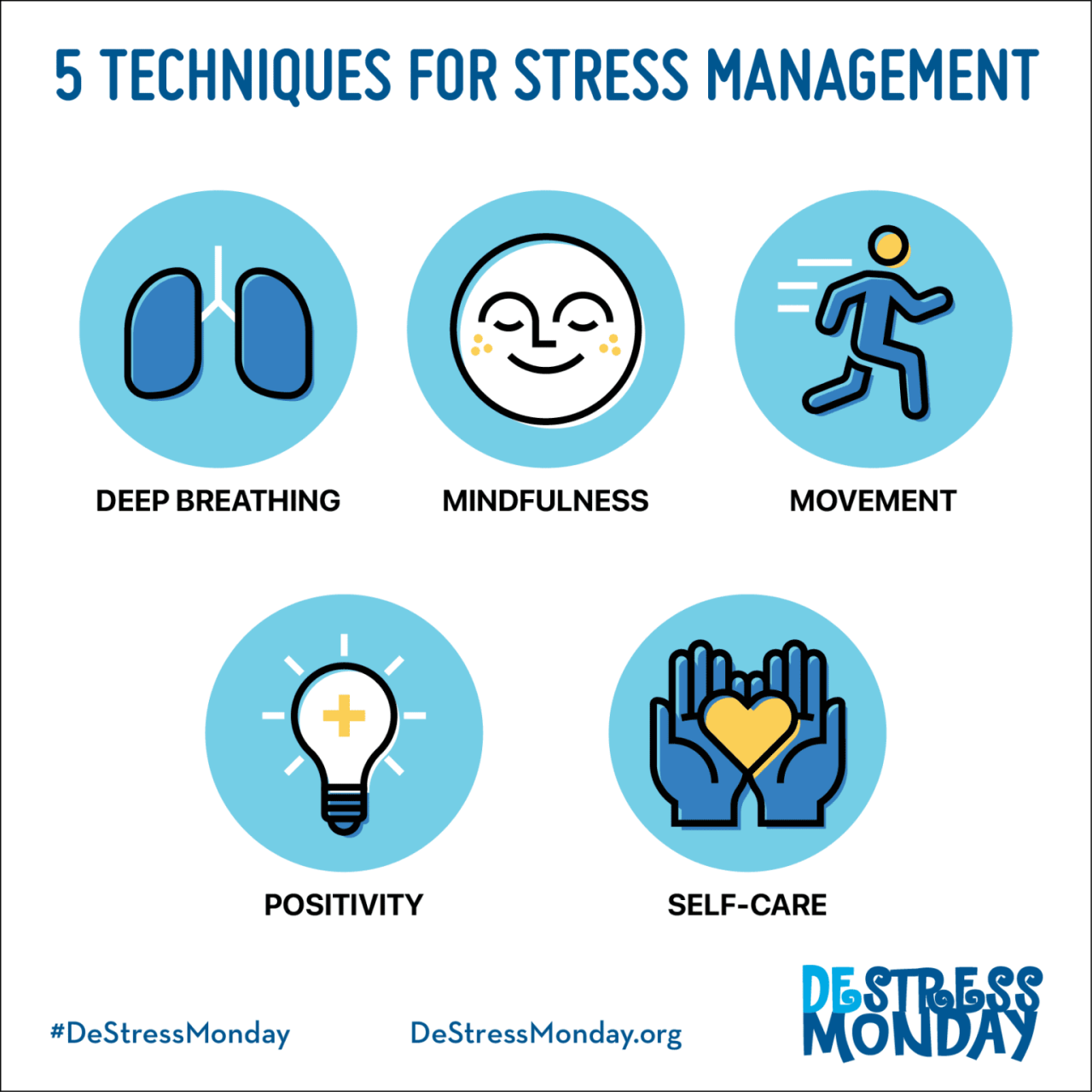Chronic stress management strategies that work: A Comprehensive Guide

Exploring effective techniques to manage chronic stress is crucial in today's fast-paced world. From mindfulness practices to lifestyle changes, this guide covers a range of strategies that actually work in combating chronic stress. Dive in to discover a path towards a healthier and more balanced life.
As we delve deeper into the topic, we will uncover valuable insights and practical tips that can make a significant difference in how you navigate and overcome chronic stress.
Introduction to Chronic Stress
Chronic stress is a prolonged state of psychological and physiological tension that can have detrimental effects on both mental and physical health. Unlike acute stress, which is short-term and typically triggered by specific events, chronic stress persists over an extended period, leading to a range of health issues.
Impact on Mental and Physical Health
Chronic stress can have a significant impact on mental health, increasing the risk of anxiety, depression, and mood disorders. It can also weaken the immune system, making individuals more susceptible to illnesses and diseases. On a physical level, chronic stress is linked to cardiovascular problems, digestive issues, and chronic pain conditions.
Prevalence in Modern Society
In today's fast-paced and demanding world, chronic stress has become increasingly common. According to the American Institute of Stress, around 77% of people in the United States experience physical symptoms caused by stress regularly, while 73% report experiencing psychological symptoms due to stress.
Common Stressors Contributing to Chronic Stress
Common stressors that contribute to chronic stress include work-related pressures, financial difficulties, relationship issues, and health concerns. The constant bombardment of information through technology and social media can also exacerbate chronic stress levels, leading to a continuous state of alertness and tension.
Identifying Signs of Chronic Stress

Chronic stress can have a significant impact on our physical, emotional, and behavioral well-being. Recognizing the signs of chronic stress is crucial in order to address and manage it effectively.
Physical Symptoms
- Headaches
- Muscle tension or pain
- Fatigue
- Sleep disturbances
Emotional Symptoms
- Anxiety
- Irritability
- Depression
- Feeling overwhelmed
Behavioral Symptoms
- Changes in appetite
- Increased use of substances like alcohol or drugs
- Isolating oneself from social activities
- Procrastination and neglecting responsibilities
Chronic stress can manifest in different areas of life, affecting work performance, relationships, and overall health. For example, at work, chronic stress may lead to decreased productivity, difficulty concentrating, and increased absenteeism. In relationships, chronic stress can cause conflicts, communication breakdowns, and feelings of disconnection.
In terms of health, chronic stress is linked to an increased risk of heart disease, high blood pressure, and other physical ailments.Personal anecdotes or case studies can provide a deeper understanding of the signs of chronic stress. For instance, someone experiencing chronic stress may find themselves constantly fatigued, snapping at loved ones over trivial matters, and experiencing frequent tension headaches.
These real-life examples help illustrate how chronic stress can manifest in various ways and impact different aspects of our lives.
Effective Stress Management Techniques
Finding healthy coping mechanisms for chronic stress is crucial for maintaining overall well-being. Chronic stress can have detrimental effects on both physical and mental health, making it essential to implement strategies that can help alleviate its impact.
Mindfulness Practices
Mindfulness practices involve focusing on the present moment without judgment, which can be a powerful tool for managing chronic stress. By practicing mindfulness, individuals can learn to observe their thoughts and emotions without getting caught up in them, leading to a calmer and more centered state of mind.
- Engage in daily mindfulness meditation to cultivate awareness and reduce stress levels.
- Practice deep breathing exercises to promote relaxation and enhance mindfulness.
- Try progressive muscle relaxation techniques to release tension and stress from the body.
Physical Exercise
Physical exercise is known to be an effective stress reliever, as it helps release endorphins and reduce cortisol levels in the body. Regular exercise can also improve overall mood and promote better sleep, both of which are essential for managing chronic stress
- Engage in activities like jogging, yoga, or dancing to get the body moving and release built-up tension.
- Set aside time each day for physical activity to reap the stress-relieving benefits.
- Find an exercise routine that you enjoy to make it easier to stick to in the long run.
Lifestyle Changes for Managing Chronic Stress

Managing chronic stress involves making significant lifestyle changes to improve overall well-being. By incorporating dietary modifications, prioritizing quality sleep, creating supportive environments, and practicing effective time management, individuals can better cope with the impact of chronic stress on their mental and physical health.
Dietary Modifications for Managing Chronic Stress
Proper nutrition plays a crucial role in managing stress levels. Some dietary modifications that can help alleviate the impact of chronic stress on the body include:
- Incorporating foods rich in omega-3 fatty acids, such as salmon, walnuts, and flaxseeds, which have been shown to reduce anxiety and improve mood.
- Consuming complex carbohydrates like whole grains and legumes, which can help regulate serotonin levels and promote a sense of calm.
- Avoiding excessive caffeine and sugar intake, as these can exacerbate stress and anxiety levels.
The Role of Sleep in Managing Stress
Quality sleep is essential for managing stress and promoting overall well-being. To improve sleep quality and reduce the impact of chronic stress, consider the following strategies:
- Establishing a consistent sleep schedule and creating a relaxing bedtime routine to signal to your body that it's time to rest.
- Avoiding screens and stimulating activities before bed, as they can interfere with your ability to fall asleep.
- Creating a comfortable sleep environment by ensuring your bedroom is dark, quiet, and at a comfortable temperature.
Creating a Supportive Environment to Reduce Stress Triggers
Creating a supportive environment at home or work can significantly reduce chronic stress triggers. Consider the following tips to promote a stress-free space:
- Establishing open communication channels with family members or colleagues to address any issues or concerns effectively.
- Setting boundaries and prioritizing self-care to avoid burnout and overwhelm.
- Practicing mindfulness and relaxation techniques to foster a sense of calm and resilience in challenging situations.
Time Management Techniques for Decreasing Stress from Responsibilities
Effective time management is key to reducing stress from overwhelming responsibilities. Consider implementing the following techniques to better manage your time and alleviate stress:
- Creating a daily or weekly schedule to prioritize tasks and allocate time for important activities.
- Using productivity tools or apps to track progress and stay organized with deadlines and commitments.
- Practicing delegation and learning to say no to tasks that may lead to excessive stress or overwhelm.
Wrap-Up

In conclusion, mastering the art of chronic stress management involves a combination of self-awareness, healthy habits, and effective coping mechanisms. By incorporating these strategies into your daily routine, you can take proactive steps towards a more resilient and stress-free life.
Essential Questionnaire
How does chronic stress impact physical health?
Chronic stress can lead to a variety of health issues such as high blood pressure, weakened immune system, and digestive problems.
What are some effective relaxation techniques for managing chronic stress?
Relaxation techniques like deep breathing, meditation, and progressive muscle relaxation can help reduce stress levels and promote relaxation.
How important is sleep in managing chronic stress?
Quality sleep is crucial in managing chronic stress as it allows the body to rest and recharge, improving overall well-being.




